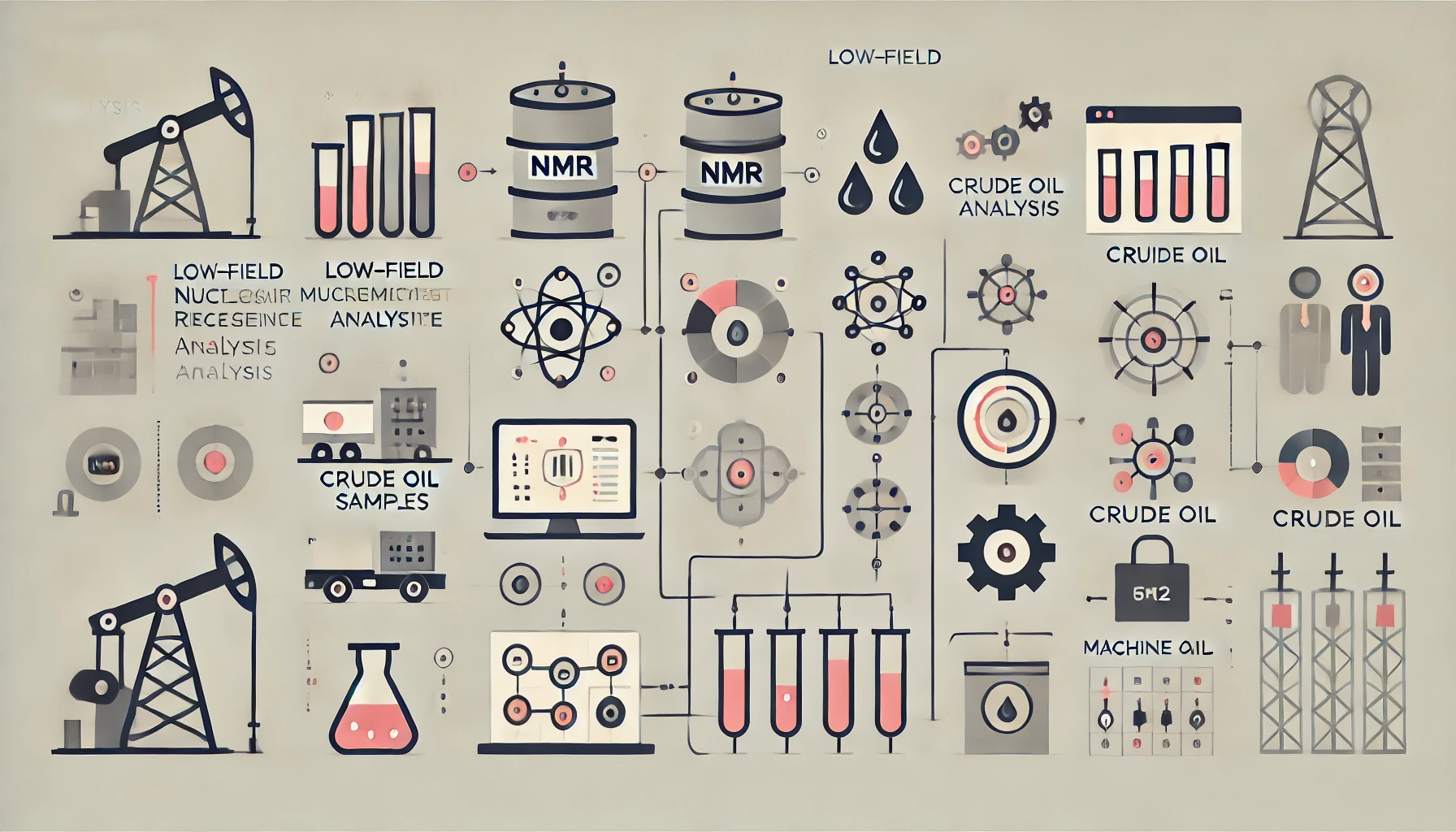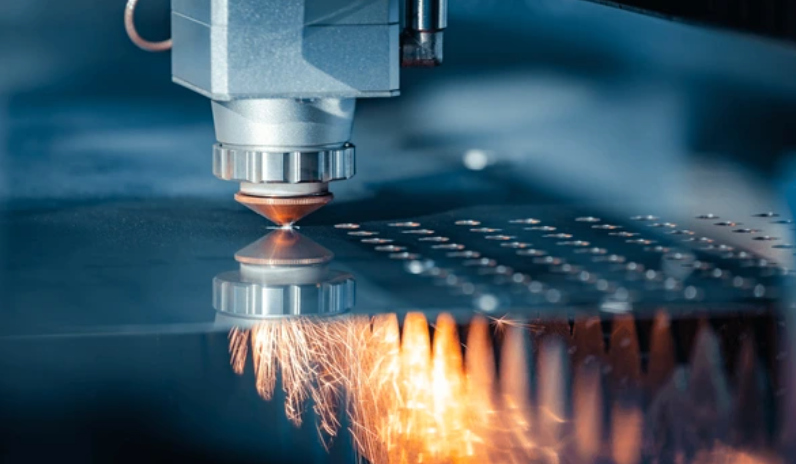Machine learning is turning NMR into a predictive tool for industrial analytics. By applying AI d...
Low-Field NMR for Crude Oil Analysis: Harnessing Machine Learning for Predicting Properties
Low-Field NMR for Crude Oil Analysis: Harnessing Machine Learning for Predicting Properties

In the oil industry, understanding the properties of crude oil is essential for refining, quality control, and maximizing production efficiency. Traditionally, this has involved complex and time-consuming laboratory methods.
However, recent advancements in low-field Nuclear Magnetic Resonance (NMR) spectroscopy, combined with Machine Learning, offer a fast, non-destructive, and cost-effective alternative for analyzing crude oil. At our company, we leverage this innovative approach to predict a wide range of physical and chemical properties, including the critical distillation yields, transforming how crude oil characterization is performed.
The Role of Low-Field NMR in Crude Oil Analysis
Low-field NMR spectroscopy measures the magnetic properties of atomic nuclei, providing information about the molecular environment in crude oil. Unlike high-field NMR instruments, which are used for detailed molecular structure analysis, low-field NMR is simpler, more affordable, and ideal for routine analysis.
It provides a rich dataset that reflects the chemical composition and physical characteristics of crude oil.
Why We Use Low-Field NMR
- Rapid Analysis: Our low-field NMR systems provide quick insights into the composition of crude oil.
- Cost-Effective: These systems are more accessible and easier to maintain compared to high-field NMR spectrometers.
- Non-Destructive: The oil samples remain intact after analysis, allowing further testing if needed.
How We Predict Crude Oil Properties Using NMR and Machine Learning
Low-field NMR spectra contain complex information about the molecular dynamics of crude oil. By applying our expertise in Machine Learning, we correlate these spectral patterns with various key properties relevant to refining and processing.
Our models, trained on extensive NMR datasets, allow us to make accurate predictions about new crude oil samples.
Key Properties We Predict Using Low-Field NMR and Machine Learning
-
Viscosity: Viscosity is a crucial factor in processing and transporting crude oil. We utilize low-field NMR data to develop models that predict viscosity accurately. This enables us to classify crude oil types quickly and determine the best processing methods, significantly streamlining our operations.
-
Density: Density is another key property influencing refining strategies. Through NMR analysis, we predict the density of crude oils rapidly and reliably, reducing the need for traditional, time-consuming laboratory methods.
-
Hydrocarbon Group Analysis: We use NMR data to classify crude oil based on its hydrocarbon content, including aromatics, paraffins, and naphthenes. By processing the NMR spectra with Machine Learning algorithms, we determine the proportions of these groups, providing critical information that guides refining and cracking processes for optimal product yields.
-
Aromatic and Aliphatic Content: NMR is sensitive to different hydrogen environments, allowing us to estimate the content of aromatic and aliphatic hydrocarbons in crude oil. This insight informs decisions about the quality and behavior of the oil during refining.
-
Asphaltene Content: Asphaltenes pose operational challenges during refining, such as clogging and residue formation. By utilizing low-field NMR and Machine Learning, we estimate the asphaltene content in crude oils, helping us anticipate potential processing issues and take early action to mitigate them.
-
Distillation Yields: One of the most valuable applications of our technology is predicting distillation yields—the proportions of gasoline, diesel, kerosene, and other products obtained from refining. Traditional methods like True Boiling Point (TBP) analysis are labor-intensive and require large sample volumes.
In contrast, our low-field NMR systems, combined with advanced Machine Learning models, enable us to predict the distillation behavior of crude oils rapidly. This allows us to optimize processing conditions and blend stocks efficiently, maximizing product yields and refining profitability.
- And Many More: The versatility of low-field NMR combined with Machine Learning allows us to predict numerous other properties, such as sulfur content, pour point, flash point, and cetane number. By developing specialized models, we continue to expand the range of properties we can predict, providing comprehensive crude oil characterization.
How Our Technology is Making an Impact
Through our expertise in low-field NMR and Machine Learning, we have successfully deployed predictive models that offer rapid and accurate analysis of crude oil properties. Here’s how our technology is making a difference:
-
Viscosity and Density Prediction: In our work with a major refinery, we utilized low-field NMR measurements to predict the viscosity and density of various crude oil samples. By training our Machine Learning models on a diverse dataset of NMR spectra, we provided fast and reliable property predictions. This allowed the refinery to adjust processing conditions in real-time, avoiding lengthy laboratory testing and enhancing operational efficiency.
-
Hydrocarbon Group Analysis: Our NMR-based hydrocarbon group analysis helps classify crude oils into different groups such as aromatics, paraffins, and naphthenes. This classification informs our refining strategies, enabling us to adjust distillation and cracking processes to maximize the yields of desired products. By implementing this analysis, we offer a competitive edge in refining operations.
-
Asphaltene Content Estimation: To address refining challenges posed by asphaltenes, we have developed a robust NMR-based model for estimating asphaltene content in crude oils. This early prediction allows us to identify crude oils that might present refining issues, enabling preemptive measures to ensure smoother processing and reduce downtime.
-
Predicting Distillation Yields: One of our most significant achievements is using low-field NMR to predict the distillation yields of crude oil. By analyzing the spectral data, our Machine Learning models estimate the yields of various fractions, such as gasoline, diesel, and jet fuel.
This prediction informs our blending decisions and process adjustments, ensuring that we optimize the refining process for maximum profitability. By integrating this technology into our workflow, we have streamlined crude oil evaluation and increased the efficiency of our operations.
The Future of Low-Field NMR and Machine Learning in Crude Oil Analysis
The combination of low-field NMR and Machine Learning is transforming crude oil analysis. Our rapid, non-destructive approach allows for a broad range of property predictions that streamline refining operations and enhance resource management.
As we continue to advance this technology, we expect even greater precision and utility in predicting crude oil characteristics, from viscosity to distillation yields. By embracing low-field NMR and Machine Learning, we are not only improving our operational efficiency but also setting new standards for crude oil analysis in the industry.
Posted By: Carmine Mattia, CTO




